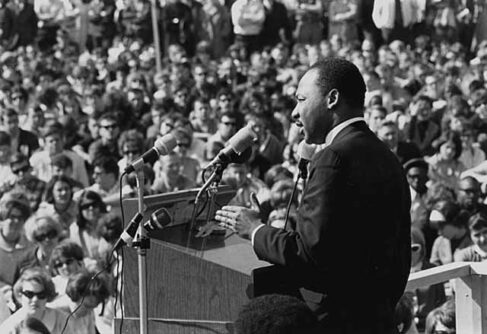Hudson Institute’s Tevi Troy has just published a delightfully written and thoughtful new book, What Jefferson Read, Ike Watched, and Obama Tweeted: 200 Years of Popular Culture in the White House, about how presidents have shaped, and been shaped by, the popular culture and media.
As befits a former White House staffer, the book focuses on how presidencies have been helped or hindered by interactions with the media (indeed, the book closes with a guide for politicians about how to approach popular culture and the media). The book is full of anecdotes and analysis of how presidents’ understanding and use of popular culture shaped their administrations.
And, while Tevi seems to describe a decline—he wryly notes that our first presidents read Cicero but President Obama and presidential candidate Mitt Romney both discussed Jersey Shore personality Snooki—he admires President Obama’s deft use of popular culture to reach different constituencies.
While Troy focuses on how presidents fare in their interactions with popular culture, there’s also much to learn from his book about how the popular culture is shaped by presidents:
>>>A president’s interaction with the media can affect our sense of what’s simply private and what can be put into the public realm, at a time when new developments from social media to street-corner cameras are eroding what we can confidently keep hidden from exposure. What if Bill Clinton had simply refused to answer when he was asked on MTV, “boxers or briefs?” Wouldn’t we be at least a tiny bit better able to defend a boundary of private life that cannot be breached?
>>> A president can also help to raise or lower the tone of public discourse. President Nixon’s “enemies list” contributed to the sense that there were not just differences of opinion on important questions (and that statesmen could be expected to broker a compromise between divergent views) but that the loyalty and patriotism of those with differing views could be called into question. Nixon’s “enemies list” is surely one origin point of the poisonous partisanship Washington suffers from today.
>>>And, finally, the president can elevate the tone of public culture. There are so many forces that dumb-down the culture: reality TV shows, much of contemporary music, the anti-intellectualism that is widely seen as cool. A president can counteract these forces by his pastimes and pursuits. For example, Troy describes the presidential “book bump,” the boost in sales that follows the disclosure that the president is reading a particular book and a sign of a president’s ability to set at least a modest literary agenda. For several years running, President Obama and his family were photographed visiting a bookstore during their annual Martha’s Vineyard vacation; surely it’s an encouragement to children and families to see the First Family making reading a part of their holiday? And, in a nation where the average person watches 2.8 hours of television each day, President George W. Bush did a public service by noting, “They put an off button on the TV for a reason.”
Troy’s What Jefferson Read, Ike Watched, and Obama Tweeted is a serious, as well as fun, book about presidents—and about the rest of us who inhabit a popular culture shaped, in part, by our presidents.






